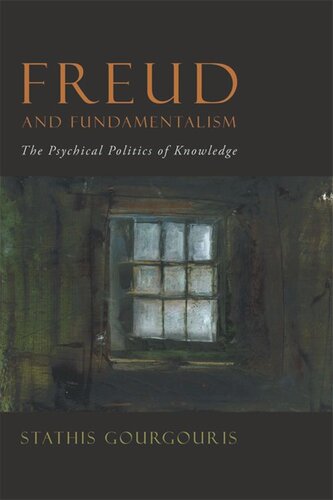

Most ebook files are in PDF format, so you can easily read them using various software such as Foxit Reader or directly on the Google Chrome browser.
Some ebook files are released by publishers in other formats such as .awz, .mobi, .epub, .fb2, etc. You may need to install specific software to read these formats on mobile/PC, such as Calibre.
Please read the tutorial at this link: https://ebookbell.com/faq
We offer FREE conversion to the popular formats you request; however, this may take some time. Therefore, right after payment, please email us, and we will try to provide the service as quickly as possible.
For some exceptional file formats or broken links (if any), please refrain from opening any disputes. Instead, email us first, and we will try to assist within a maximum of 6 hours.
EbookBell Team

5.0
70 reviewsAt the heart of this volume are questions about the psychic components of the modes of thinking we call “fundamentalist”—that is, thinking that disavows multiplicities of meaning, abhors allegorical elements, and strives toward an exclusionary orthodoxy that codifies not just its own world but that of its adversaries, its others. The essays address transcendentalist orthodoxies of all kinds, whether religious or secularist. Fundamentalist elements in psychoanalysis itself are also placed in question, at the same time as psychoanalytic thinking and practice is explored as a mode of knowledge that ultimately unravels fundamentalist tendencies. The texts in this collection represent a wide array of disciplinary standpoints. Their overall aspiration is to interrogate discourses of orthodoxy, literalism, exclusion, and dogma—that is, discourses obsessed with monolithic (monolingual, monological, monolateral, monomythical, and certainly monotheistic) encounters with the world.